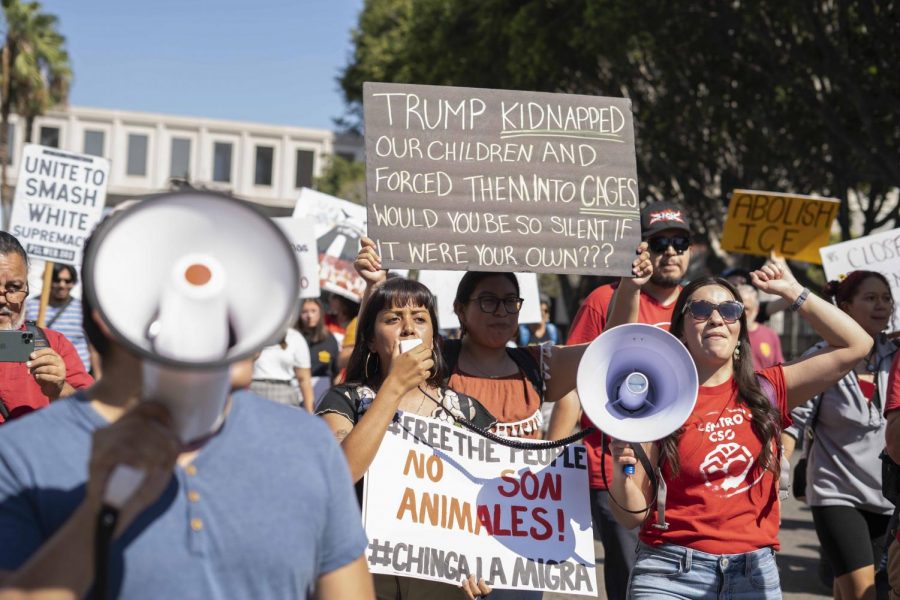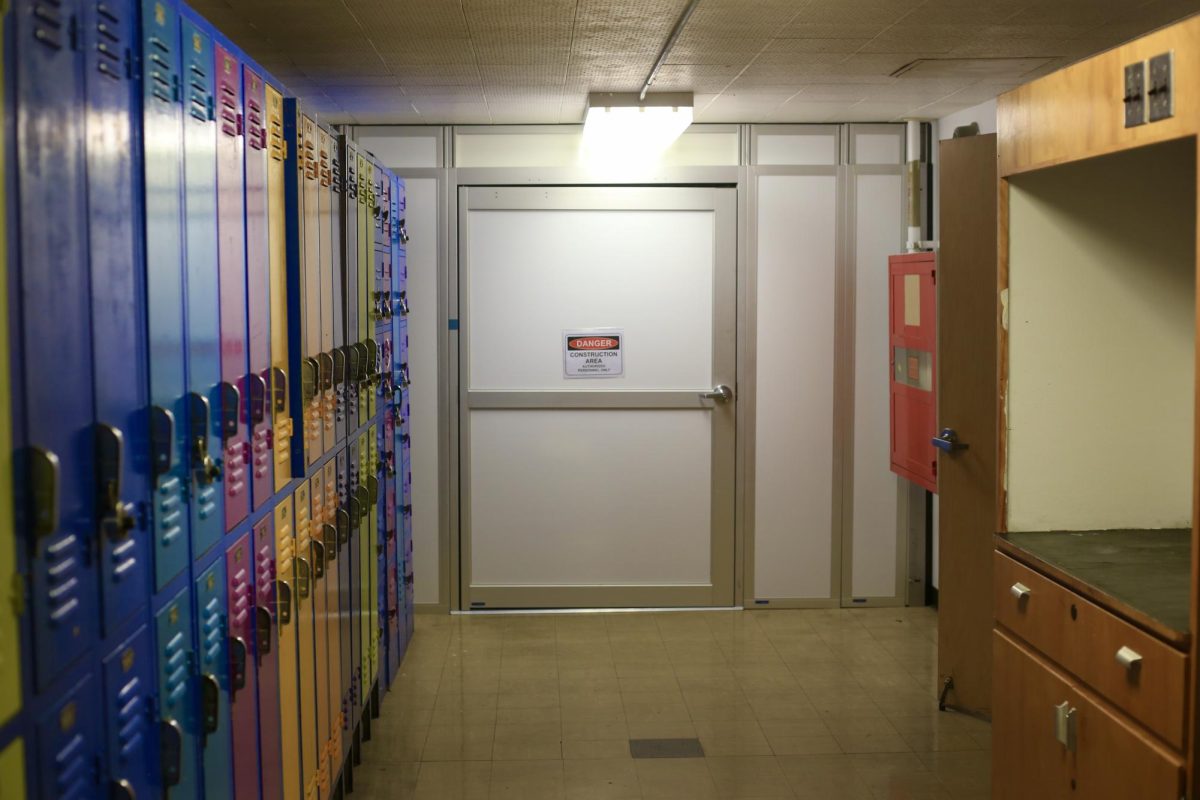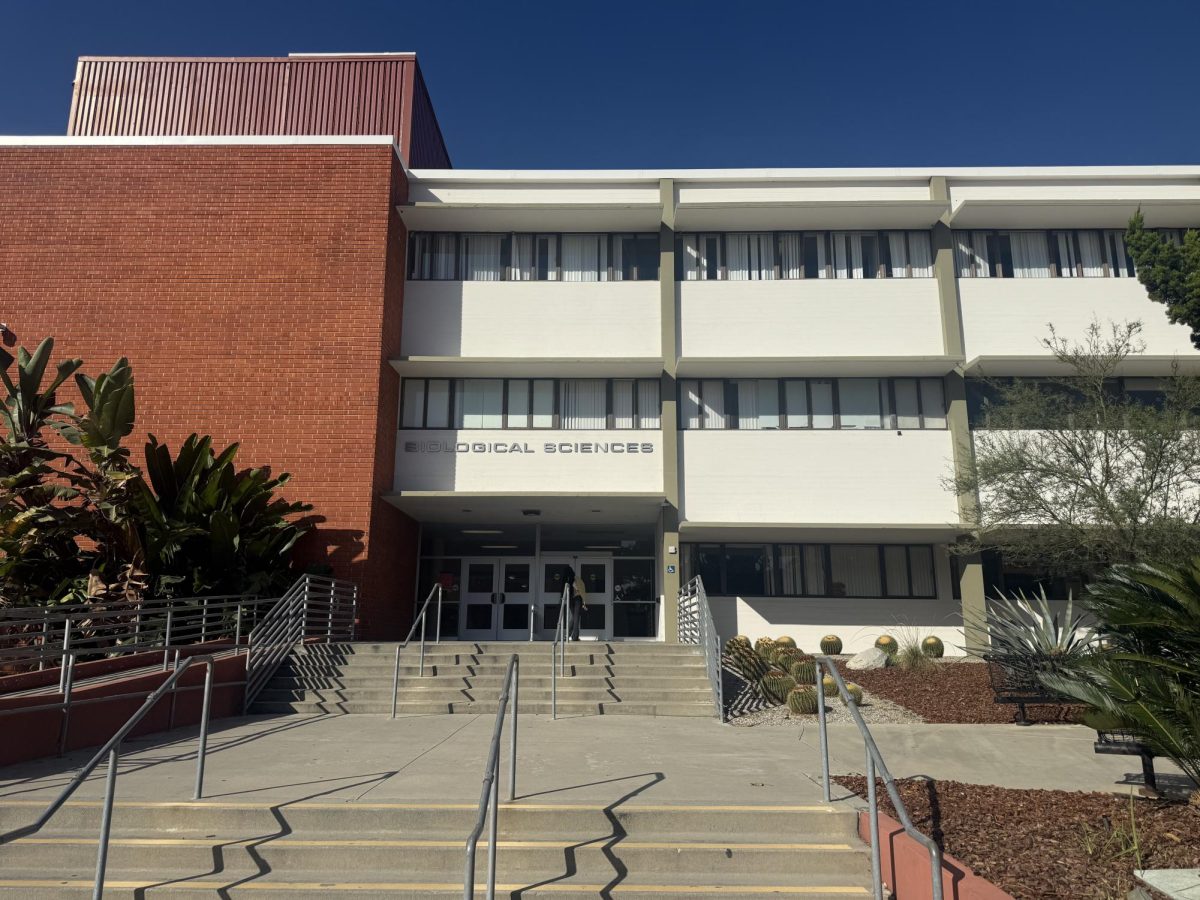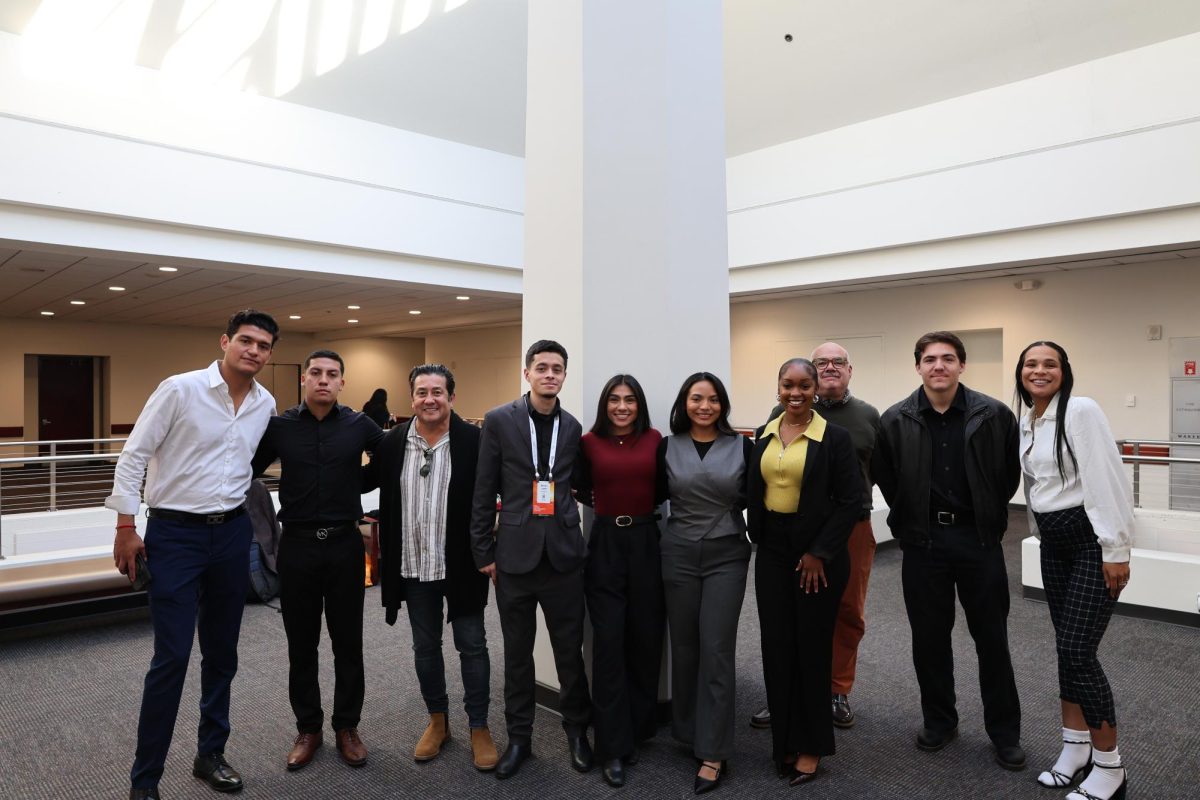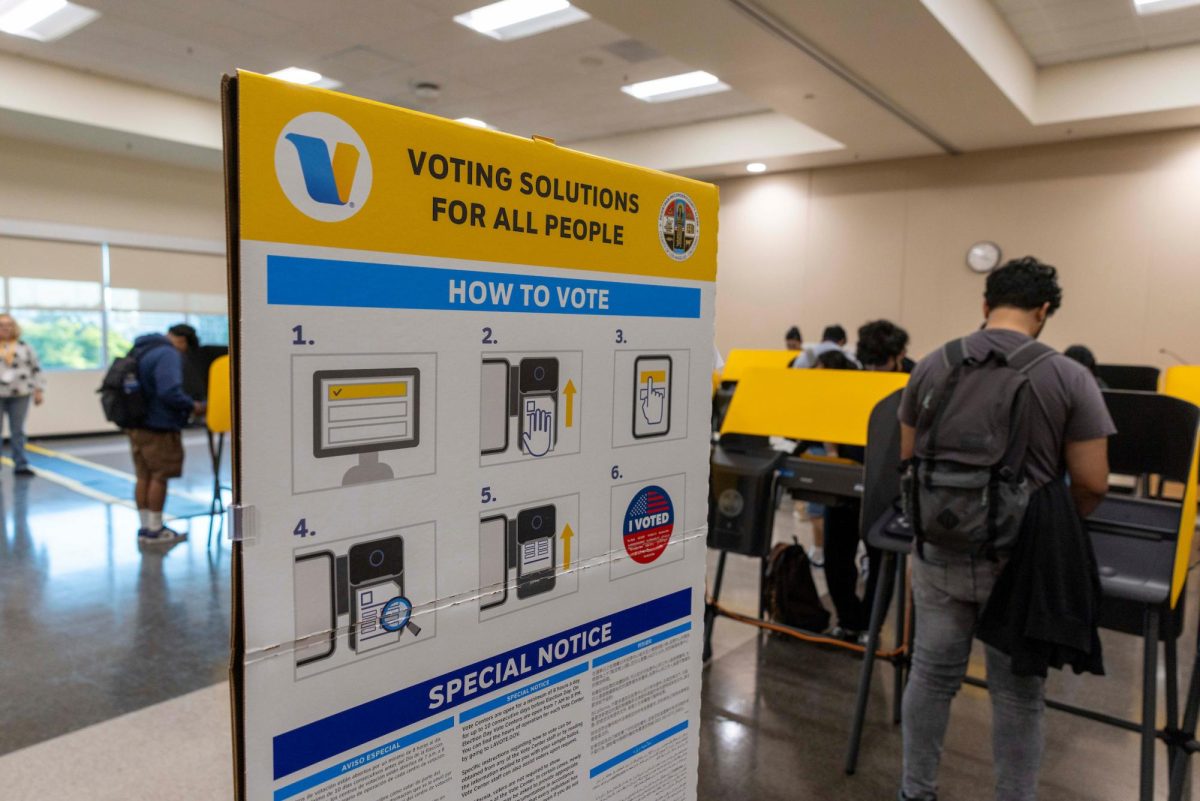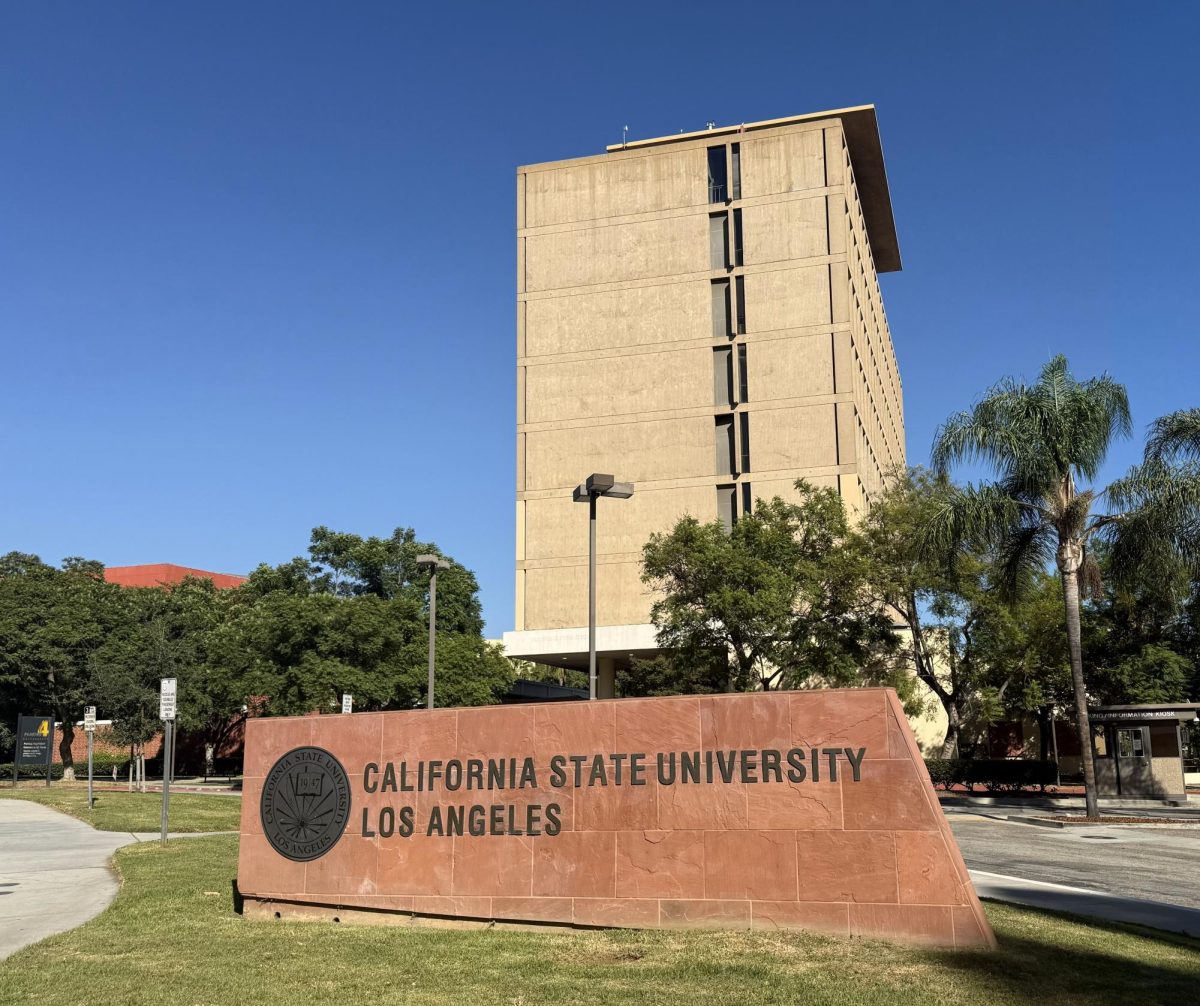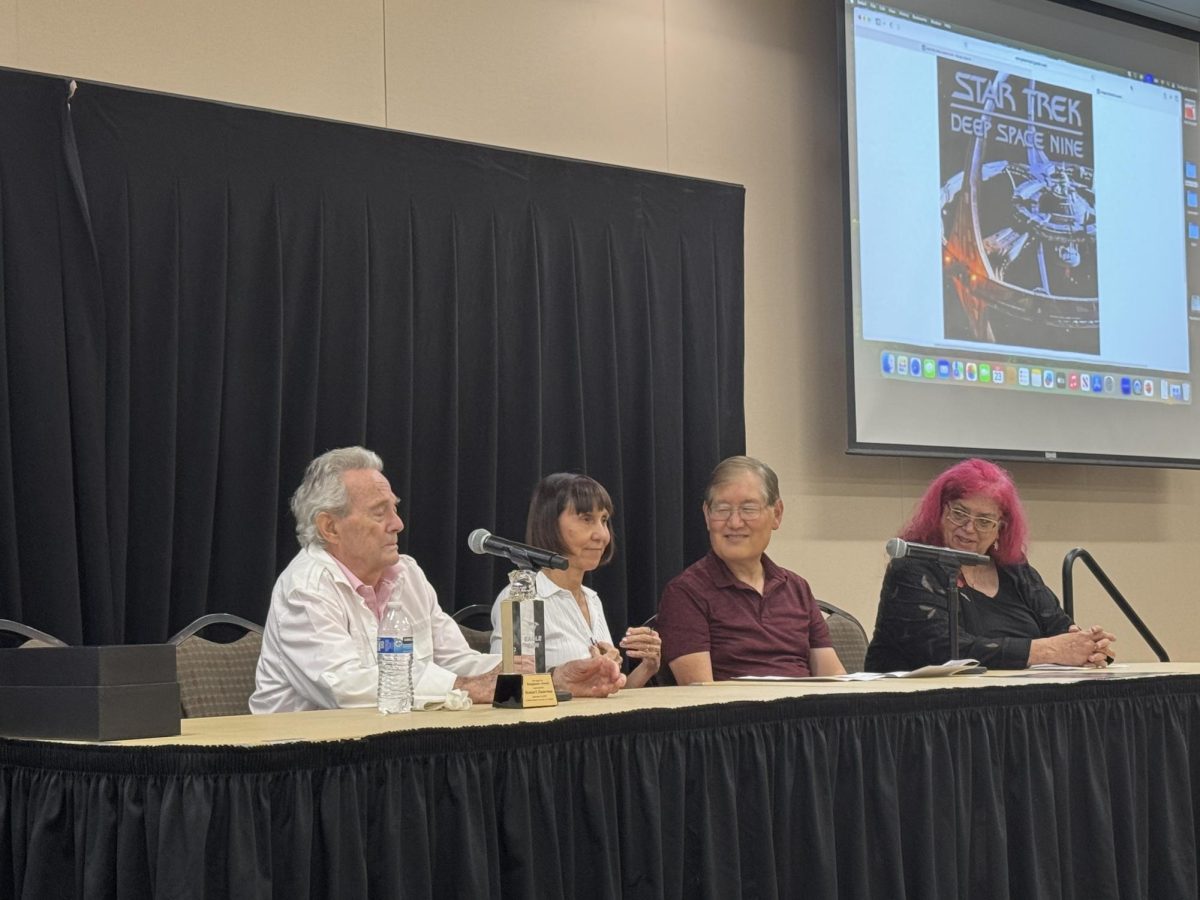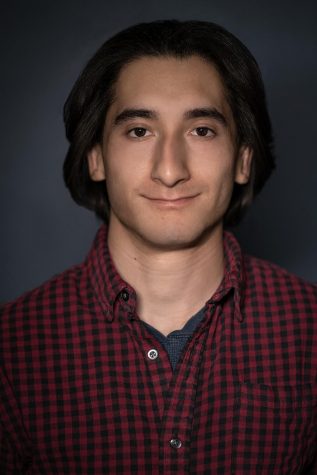Cal State LA students and professors joined more than 40 local organizations in Downtown Los Angeles for the National Day of Action to demand the closure of the immigration detention centers.
Protestors marched from Grand Park to the Los Angeles Sheriff’s Station in downtown on Saturday morning to urge the LA Sheriff’s Office and Immigration and Customs Enforcement (ICE) to release migrant asylum seekers being detained at the U.S. border and to close the migrant camps.
For some students in attendance, the issue of immigration resonates. Livan Jimenez, a fourth-year political science student, has family members who are undocumented immigrants.
“Most of these arguments against undocumented immigrants are very one dimensional and don’t hold into context the complexities and the different obstacles that undocumented people face,” he said.
Jimenez said it took his mother more than 25 years to finally get her U.S. residency due to the obstacles she faced in raising money for legal fees and living paycheck-to-paycheck.
His mother was fearful of him participating in the protest because of the fear that he could be arrested.
“Growing up, there were moments where I would cry wondering if something would happen to my mom,” he said. “It’s important to stand up for all these families that are being separated and being denied their human rights.”
As a political science major, he said it’s important for people to vote and change the system by electing more people of color. He said we cannot continue to repeat history, referencing the Japanese internment camps during World War II.
“This isn’t the first time it has happened, and it is obvious it’s the same thing under a new name and narrative,” he said.
Matiana Parra, a third-year political science student, said she has family and friends who are directly impacted by the government stance the on undocumented immigrants.
“I don’t like that our government thinks it’s okay to put children in camps and separate families,” she said. “You can’t call anyone a criminal who is just trying to make a livelihood.”
Some Cal State LA professors were also in attendance to show support and demand the closure of the detention centers. Anthony Ratcliff, an associate professor in the Department of Pan-African Studies at Cal State LA, was there to help bring attention to what he calls “the deplorable conditions of the camps.”
“You see kids crammed in cages,” he said. “We are here to say that these camps should be closed immediately.”
Ratcliff said with every new thing in the media, people tend to redirect their focus and forget about the issues that are still taking place.
He further mentioned the importance of pushing forward California Assembly Bill 32, which would phase out private, for-profit prisons and immigrant detention centers by 2028. The bill was approved earlier that day. He added, however, that the detention centers need to be closed now, not later.
“People need to be released from these camps and people seeking asylum should be able to have their hearings as soon as possible. Let’s move forward,” Ratcliff stated.
Sergio Velasquez, a political science major, views the national immigration issue as one that could create a precedent if the border is not secure.
“Undocumented immigrants who are already here and contribute to our country and are a fundamentally good part of our society should stay,” Valasquez said. “To grant amnesty to the millions of undocumented immigrants, we must secure our borders first, and then grant amnesty, otherwise it creates an incentive for even more people to come illegally and then we’re back to square one – where there are millions of undocumented people.”
Tanya Kane-Parry, a professor in the Department of Theater and Dance at Cal State LA and volunteer at El Otro Lado where she works with refugees in Tijuana, Mexico, was in attendance.
She said the policy against migrants is one based on white supremist ideology. “The only purpose of these camps is to make people suffer, to be abused and tortured, and to deter other migrants from seeking asylum,” said Kane-Parry.
She added the detention centers are not needed since the asylum process for refugees goes through the court systems where they can apply.
“We see the fear and terror these migrants are experiencing at these camps,” she said. “We want these immigrants to know that we are here fighting for them.”
Luis Chavez contributed to this report.

